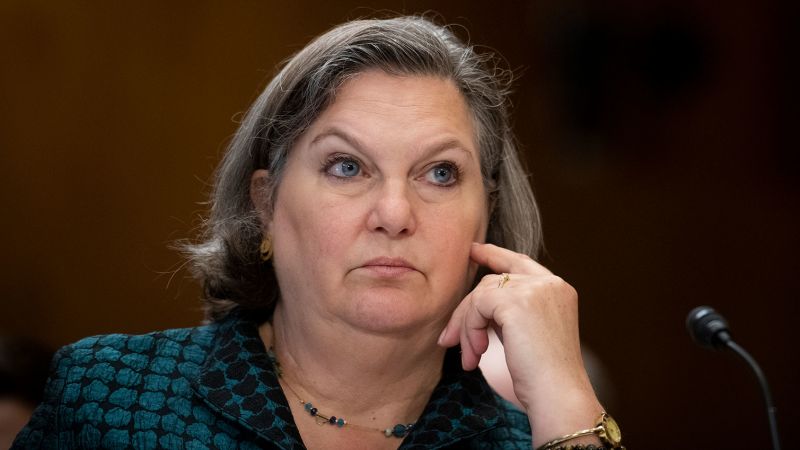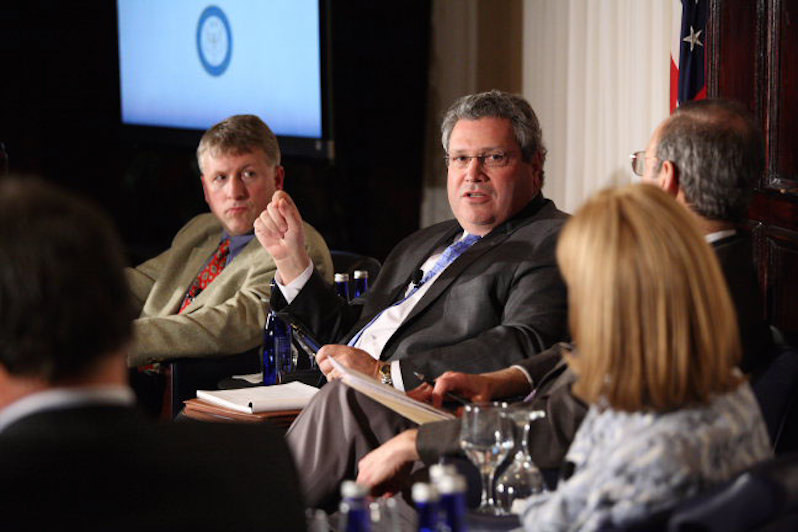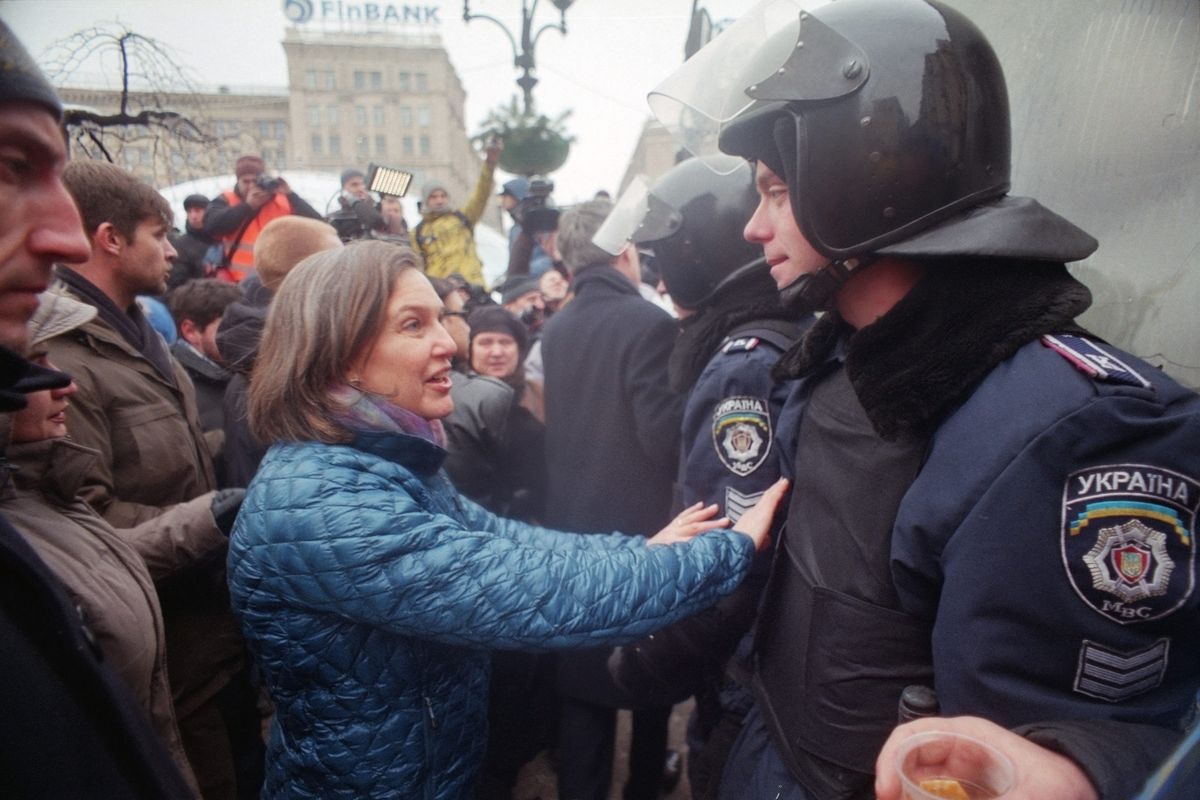1,462 views May 15, 2024 Conversations with Bill Kristol
Victoria Nuland and Robert Kagan fell in love “talking about democracy and the role of America in the world” on one of their first dates. It’s a shared passion that hasn’t faded over time.
It was just two years ago that President Obama was gushing to aides about an essay that Kagan, a historian and author, wrote about the myth of American decline—a theme Obama echoed in his State of the Union that January. This year, Kagan’s sprawling New Republic essay, “Superpowers Don’t Get to Retire,” insisted on America’s enduring responsibility to shape the world order—and issued a direct challenge to a president who has summarized his own foreign-policy doctrine with a minimalist “don’t-do-stupid-s—t” directive. Obama promptly invited Kagan in for a West Wing consult, but it was also clear that Kagan had helped rouse the president’s Republican critics, who have been increasingly adopting Kagan’s argument that just because it’s been a decade of wearying war in Iraq and Afghanistan doesn’t mean America can roll up its superpower carpet and stay home when new crises, from Iraq to Russia to Syria, beckon.
Nuland, overseeing European and Eurasian Affairs at the State Department, has been a strong advocate of the engaged approach her husband favors as a crisis with Russia has unfolded on her diplomatic turf this year. The point was made, rather sensationally, in February, when a leaked audio recording of her F-bomb-laden diatribe about the fecklessness of the European Union, which she accused of not exactly playing a constructive role trying to end the growing conflict in Ukraine, appeared on the Internet. Nuland, a career Foreign Service officer, has been an impassioned advocate for democracy-building in Eastern Europe, and while she got pushback from European counterparts over her “f—k the EU” comment, the United States has been leading the effort to impose sanctions on Russia since President Vladimir Putin seized Ukraine’s Crimean Peninsula and waged a proxy war in the country’s east—dragging a reluctant Europe along pretty much every step of the way.___________________________________________________________________________
Is today's anti-liberalism a new phenomenon in American politics? What might earlier eras in US history have to teach us? To discuss these questions, we are joined, again, by Robert Kagan, the historian and senior fellow at the Brookings Institution. Drawing on his new book, Rebellion: How Antiliberalism Is Tearing America Apart—Again, Kagan argues that we “don’t realize that the [anti-liberal] movement we’re looking at today has been visible in every generation since the founding.” Kagan draws particular attention to the 1920s, when anti-immigration sentiment, white identity politics, and sympathy for authoritarian figures were prevalent in America. Kagan notes that the MAGA movement can be understood as a part of a long history of anti-liberalism that runs counter to the tradition of the founders, yet remains endemic to American democracy. Liberal democracy in America thus needs to be fought for and cannot simply be assumed. On a long tradition...
For more Conversations, visit http://www.conversationswithbillkrist...
Chapter 1 (00:15 - 39:37): Anti-Liberalism and American History
Chapter 2 (39:37 - 1:19:21): From the 1920s to the 2020s
Bob Kagan starts by going back to the 1920's very similar then White Nationalists to MAGA politics now, and some talk about so-called 'Elites'
Editor’s note: POLITICO Magazine released a list of the top 50 influential people in Washington, D.C., including Brookings Senior Fellow Robert Kagan and Assistant Secretary of State for European and Eurasian Affairs Victoria Nuland, described as “the ultimate American power couple.”
Victoria Nuland and Robert Kagan fell in love “talking about democracy and the role of America in the world” on one of their first dates. It’s a shared passion that hasn’t faded over time.
It was just two years ago that President Obama was gushing to aides about an essay that Kagan, a historian and author, wrote about the myth of American decline—a theme Obama echoed in his State of the Union that January. This year, Kagan’s sprawling New Republic essay, “Superpowers Don’t Get to Retire,” insisted on America’s enduring responsibility to shape the world order—and issued a direct challenge to a president who has summarized his own foreign-policy doctrine with a minimalist “don’t-do-stupid-s—t” directive. Obama promptly invited Kagan in for a West Wing consult, but it was also clear that Kagan had helped rouse the president’s Republican critics, who have been increasingly adopting Kagan’s argument that just because it’s been a decade of wearying war in Iraq and Afghanistan doesn’t mean America can roll up its superpower carpet and stay home when new crises, from Iraq to Russia to Syria, beckon.
Nuland, overseeing European and Eurasian Affairs at the State Department, has been a strong advocate of the engaged approach her husband favors as a crisis with Russia has unfolded on her diplomatic turf this year. The point was made, rather sensationally, in February, when a leaked audio recording of her F-bomb-laden diatribe about the fecklessness of the European Union, which she accused of not exactly playing a constructive role trying to end the growing conflict in Ukraine, appeared on the Internet. Nuland, a career Foreign Service officer, has been an impassioned advocate for democracy-building in Eastern Europe, and while she got pushback from European counterparts over her “f—k the EU” comment, the United States has been leading the effort to impose sanctions on Russia since President Vladimir Putin seized Ukraine’s Crimean Peninsula and waged a proxy war in the country’s east—dragging a reluctant Europe along pretty much every step of the way.









No comments:
Post a Comment